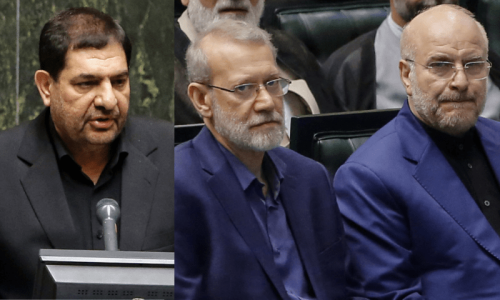Following the Peshawar tragedy, a wave of public outrage swept the country and the overwhelming sense of grief felt by nearly all Pakistanis was quickly replaced by anger. Cognisant of this rising tide of public opinion and under pressure from political actors, Prime Minister Nawaz Sharif announced an end to the moratorium on the death penalty that had been in force in the country since the time of the Pakistan People’s Party government. To understand the implications of this decision and weigh its costs and benefits, Dawn spoke to Ahmer Bilal Soofi, an expert in international law, and asked him what he felt was going to be the outcome of rescinding this moratorium.
Q: What was the legal status of the moratorium on the death penalty and what impact will its lifting have on the dispensation of justice in Pakistan?
A: The legal position is that capital punishment is still part of the law, which means that as long as parliament does not amend the law, Pakistan is under no obligation not to carry out sentences awarded under it. International legal obligations that Pakistan is a signatory to, such as international conventions, do not pressure Pakistan into not executing those who have been tried and found guilty.
So far, we were holding back as a courtesy, or in the hope of certain perceived economic benefits (in terms of the GSP Plus status afforded by the European Union). But the consequences of holding back have now become too great for this moratorium to continue.
In every country, the criminal justice system is linked to a sense of equilibrium: you can either reform the individual or bring them to justice. In the absence of the death penalty, the criminal justice system of Pakistan was missing that equilibrium, because the jurisprudential framework that is in force in the country relies heavily on the enforcement of capital punishment.
If we wish to eliminate capital punishment from the legal framework, we must change the entire system accordingly. If it is simply deleted from the law, then what will replace it and what will help us achieve its results?
Q: Given that several laws, such as the Anti-Terrorism Act, the Protection of Pakistan Act as well as the Fair Trial Bill, have all been criticised for their potential to sentence innocent people to the gallows, what are the chances that rescinding the moratorium will lead to the execution of innocent people?
A: We must differentiate between two types of cases. Firstly, there are those who have been awarded the death penalty after their entire case has been processed and heard at all levels, from the trial court to the superior courts, then in appeals and review petitions. We cannot do much about them, because in such cases, the sentence has been confirmed through a prescribed sequence of events.
Secondly, we have those who may be convicted under these laws in the future. In that context, I believe that the Fair Trial Act and the Protection of Pakistan Act will actually protect innocent people from prosecution. The Fair Trial Act provides the state the opportunity to identify actual suspects: people against whom evidence is collected through surveillance that is considerably accurate. Much like the Regulation of Investigatory Powers Act in the UK and similar laws in the US and around the world, the Pakistani law requires that warrants of surveillance be obtained from a judicial authority. The surveillance is then carried out by law enforcement agencies, and then, on the basis of that evidence, convictions are granted. This will safeguard against innocent people being put away for the sake of showing efficiency, because there is a prescribed procedure for everything.
Text by Hassan Belal Zaidi
Published in Dawn, December 18th, 2014












































